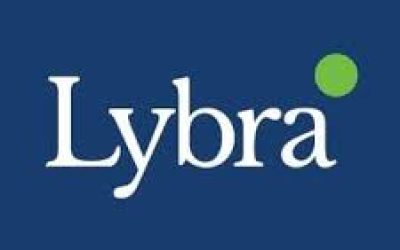Be Empowered
Resources
Intergrated Sustainable Waste Management Training
Our Integrated Sustainable Waste Management Training provides a comprehensive approach to managing waste effectively while promoting sustainability. In this tutorial, you’ll learn about the principles of waste segregation, recycling, composting, and the use of innovative technologies like ToSHA. Designed for individuals, organizations, and waste service providers, this training equips you with practical skills to reduce waste, minimize environmental impact, and contribute to a circular economy. Join us in driving change towards a cleaner, greener future!
How ToSHA Technology Works
ToSHA Technology works by using advanced plasma thermal decomposition to safely process all types of waste, including hazardous biomedical materials and non-recyclable plastics.
This high-temperature process breaks down waste into its basic components, producing inert, non-toxic ash that can be repurposed in industries like construction. Unlike traditional incinerators, ToSHA virtually eliminates harmful emissions such as carbon and dioxins, reducing greenhouse gases by up to 98%. This cutting-edge technology offers a sustainable solution for waste disposal, turning harmful materials into useful byproducts while protecting the environment.

Download Our Free printable Infographic
FAQs
1. What is Zero Waste Kenya?
Zero Waste Kenya is a movement and initiative focused on promoting sustainable waste management practices across Kenya. We aim to reduce waste at the source, encourage recycling, and raise awareness about the harmful effects of improper waste disposal on the environment and public health.
2. What types of waste can be recycled?
Common recyclable materials include paper, cardboard, glass, plastics (types 1 and 2), and metals like aluminum and steel. Organic waste can be composted, while some electronics can be sent to specialized recycling centers. Check our Waste Segregation Guide for a more detailed breakdown.
3. How can I report illegal dumping or improper waste disposal?
You can report cases of illegal dumping or waste mismanagement via our Report Case form on the Get Involved page. We work with local authorities to address these issues swiftly. Your report helps us keep communities clean and accountable.
4. How do I volunteer with Zero Waste Kenya?
We welcome volunteers of all backgrounds! Visit the Volunteer Opportunities section on our website to see available roles, which include community clean-ups, educational workshops, and event support. Sign up to get involved and make a difference!
5. How is Zero Waste Kenya funded?
We are funded through a combination of donations from individuals, partnerships with organizations, and grants from environmental funds. You can support us by visiting the Fund Our Work section.
6. What should I do if I have waste that I can't dispose of properly?
If you’re unsure how to handle specific waste items, refer to our Waste Segregation Guide for details. If the waste is hazardous or difficult to manage, we recommend contacting a certified waste service provider or your local municipality for advice on safe disposal.
5. What are the best ways to reduce waste at home?
Start by reducing your use of single-use plastics, composting organic waste, and recycling materials such as paper, metal, and plastic. You can also opt for reusable bags, containers, and water bottles to minimize your household’s waste output.
6. How can businesses participate in Zero Waste Kenya initiatives?
Businesses can partner with us by adopting sustainable waste management practices, donating to support our programs, or offering services and resources. Visit the Fund Our Work section for more details on corporate sponsorships and contributions.
7. How does Samawati ToSHA technology work?
Samawati ToSHA is a plasma thermal decomposition technology that safely processes residual waste, including biomedical waste and unrecyclable plastics, converting it into inert, non-toxic ash. This technology significantly reduces greenhouse gas emissions and provides an eco-friendly alternative to incineration and landfills.
8. What events and workshops does Zero Waste Kenya offer?
We host a variety of events, including educational workshops on waste segregation, community clean-ups, and seminars on sustainable living. Check the Events and Workshops page for upcoming activities and opportunities to participate.
9. How does Zero Waste Kenya help combat climate change?
Through initiatives like Samawati ToSHA, we reduce greenhouse gas emissions by providing alternatives to traditional waste disposal methods such as landfills and incineration. Additionally, we promote practices that help reduce waste at the source, which minimizes the environmental footprint of waste generation.
What is a Circular Economy?
Webinars
Coming soon
Waste Management Policies & Regulations
EMCA 1999: National Environment Management Authority (NEMA) – Environmental Act (EMCA)
Draft Plastics Management Regulations: National Environment Management Authority (NEMA) – Draft Plastic Regulations 2018
Extended Producer Responsibility: National Environment Management Authority (NEMA) – Sustainable Waste Management Act 2022 (EPR)
ENVIRONMENTAL MANAGEMENT AND CO-ORDINATION (WASTE MANAGEMENT) REGULATIONS, 2023: ken84967.doc (nema.go.ke)




